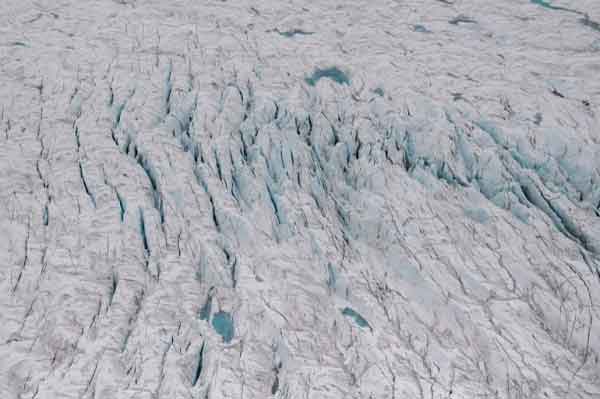 Global warming may have already passed an irreversible tipping point, the scientist who led the biggest-ever expedition to the Arctic has warned.
Global warming may have already passed an irreversible tipping point, the scientist who led the biggest-ever expedition to the Arctic has warned.
Berlin.- Presenting the first findings of the world’s largest mission to the North Pole, an expedition involving 300 scientists from 20 countries, Markus Rex said on Tuesday that the researchers had found that Arctic ice is retreating faster than ever before.
“The disappearance of summer sea ice in the Arctic is one of the first landmines in this minefield, one of the tipping points that we set off first when we push warming too far,” he said during the presentation in Germany’s capital, Berlin.
“And one can essentially ask if we haven’t already stepped on this mine and already set off the beginning of the explosion.”
The $165 million's expedition returned to Germany in October after 389 days drifting through the Arctic, bringing home devastating proof of a dying Arctic Ocean and warnings of ice-free summers in just decades. It also brought back 150 terabytes of data and more than 1,000 ice samples.
The data collected during the expedition included readings on the atmosphere, ocean, sea ice, and ecosystems. The ice was only half as thick and temperatures measured 10 degrees higher than during the Fram expedition undertaken by explorers and scientists Fridtjof Nansen and Hjalmar Johansen in the 1890s.
Because of the smaller sea ice surface, the ocean was able to absorb more heat in the summer, in turn meaning that ice sheet formation in the autumn was slower than usual. “Only evaluation in the coming years will allow us to determine if we can still save the year-round Arctic sea ice through forceful climate protection or whether we have already passed this important tipping point in the climate system,” Rex added, urging rapid action to halt warming.
Stefanie Arndt, who specializes in sea ice physics, said it was “painful to know that we are possibly the last generation who can experience the Arctic which still has a sea ice cover in the summer.”
“This sea ice cover is gradually shrinking and it is an important living space for polar bears,” said Arndt, recalling observations of seals and other animals in the polar habitat.
To carry out the research, four observational sites were set up on the sea ice in a radius of up to 40 kilometers (25 miles) around the mission’s Polarstern ship. Among data collected were water samples from beneath the ice to study plant plankton and bacteria and better understand how the marine ecosystem functions under extreme conditions.
More than 100 parameters were measured almost continuously throughout the year. The abundance of information will feed into the development of models to help predict what heatwaves, heavy rains, or storms could look like in 20, 50, or 100 years. (RHC)










































